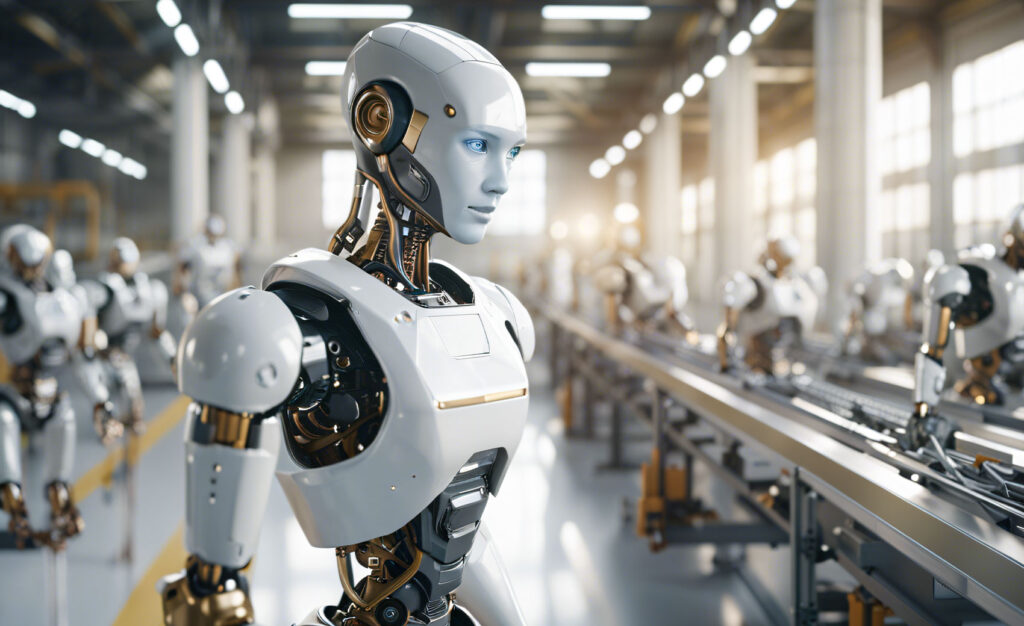Science fiction has showcased thousands of movies featuring humanoid robots. But what if they turn into a reality? Numerous models developed by Open AI, Boston Dynamics, and Tesla, can walk and show movements like humans and the outer world.
However, their ability to include artificial intelligence (AI) in humanoid robots can help leap into one’s everyday life.
Artificial intelligence-enabled brains can help improve how we interact with humans and the outer world. It gives the ability to have the “iPhone moment” which means the market is growing.
Large language models and AI chatbots, like Open AI’s chatbot demonstrate how good they are at learning from massive datasets and using them to reason with.
Embodied intelligence refers to the integration of the cognitive process, like physical movement. For instance, how our brain controls our limbs. The objective of integrating robots with AI could result in similar activities. Currently, the concept relies on visual AI systems to help computers make sense of artificial intelligence objects.
One of the examples of an AI system was PaLM-E. The engineers behind the development trained to directly raw streams of the robot data.
From Factories to Home
Modern research in robots resulted in the development of robots that can operate in extreme environments. These include the NASA Valkyrie robot, designed for exploring space.
Robots like Tesla Optimus can bring manufacturing by performing tasks that require endurance and precision.
For instance, in a factory, the Optimus can find a place in the household. It can handle chores like cooking, cleaning, and clearing for the elderly.
In 2024, Stanford University’s robot went viral on the internet for explaining its expertise in cooking Chinese food, cleaning, putting dishes into the dishwasher, preparing beds, and putting clothes for laundry.
Can Humanoid Robots Perform Well in the Market?
Although there’s positive outlook for the development of humanoid robots, their introduction to the market remains uncertain. The factors that could influence its potential are success, cost reliability, and public perception.
According to several incidents, the adoption of new machines or technology often faces challenges in winning a customer’s trust.
For instance, the Apple iPhone’s 16th model, which was launched in September 2024, faced major drawbacks, especially in the Chinese market. Shih-Fang Chiu, a senior industry analyst at the Taiwan Institute of Economic Research, explained the scenario saying, “Apple’s strength is information security and privacy, but this is difficult to achieve in the Chinese market, where the government can control the data in China’s market to a relatively high degree.
In the era of AI mobile phones, this will bring challenges to Apple’s development in the Chinese market.
On the contrary, the current AI’s ability is far different from human intelligence. Hence, the horrifying scenarios depicted in Steven Spielberg’s directed film, AI: Artificial Intelligence is not going to happen anytime in 2024.






